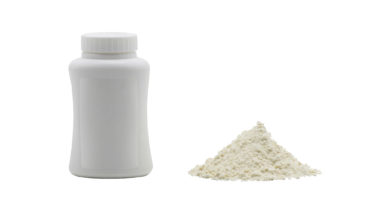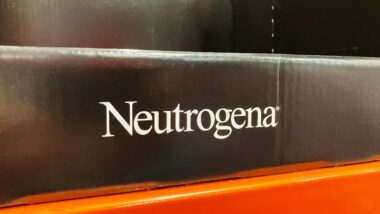Top Class Actions’s website and social media posts use affiliate links. If you make a purchase using such links, we may receive a commission, but it will not result in any additional charges to you. Please review our Affiliate Link Disclosure for more information.
In late 2019, the U.S. Food and Drug Administration (FDA) announced that testing of heartburn medication Zantac indicated the presence of N-nitrosodimethylamine (NDMA), a potential carcinogen, prompting a Zantac recall.
Zantac Side Effects Overview
Zantac (generic name ranitidine) is used to treat intestinal and stomach ulcers, gastroesophageal reflux disease (GERD), and erosive esophagitis. Zantac received FDA approval in 1981 and has since become widely popular, with some 15 million Zantac prescriptions written annually, plus many more consumers using over-the-counter versions.
Zantac is an acid reduction drug known as an H2 (histamine-2) blocker, which blocks stomach acid production, helping to prevent and heal inflammation and ulcers. H2 blockers have a similar effect as proton pump inhibitors (PPIs), but function differently, as PPIs reduce acid by blocking the enzyme in the stomach wall that produces the acid associated with many ulcers.
More dangerous Zantac side effects may include liver inflammation, resulting in jaundice and fatigue, changes in brain function such as brain fog, agitation, confusion, depression, or hallucinations, blurry vision, or abnormal heart rate.
Zantac and other ranitidine-containing drugs that have been contaminated with NDMA may cause other, more serious side effects.
What Is NDMA?
NDMA is a substance that may be formed as a byproduct of water treatment or other industrial processes. It may also be formed as a byproduct of rocket fuel. It is a probable human carcinogen, or substance capable of causing cancer in humans.
NDMA is commonly found in smoked meats or cheeses, grilled meats, fish, whiskey, or beer. It may also be in drinking water, shampoo, cigarette smoke, and pesticides. In 2019, the contaminant was discovered in Zantac and other medications.
Exposure to NDMA may result in the development of cancer. The NDMA levels found in Zantac are low, but still above the acceptable level set by the FDA.
On Sept. 13, 2019, the FDA issued a statement about “low levels” of NDMA found in certain ranitidine medications.
“Patients should be able to trust that their medicines are as safe as they can be and that the benefits of taking them outweigh any risk to their health,” the FDA noted. “Although NDMA may cause harm in large amounts, the levels the FDA is finding in ranitidine from preliminary tests barely exceed amounts you might expect to find in common foods.”
What Are the Short Term Zantac Side Effects?
People who take Zantac contaminated with NDMA may be subject to a variety of side effects. Short-term side effects of NDMA exposure may include:
- Jaundice
- Nausea
- Fever
- Vomiting
- Dizziness
- Abdominal pain
- Damage to the bladder, kidneys, liver, lungs, pancreas, and stomach
Are There Any Long Term Zantac Side Effects?
Long-term exposure to NDMA-contaminated Zantac may result in serious health consequences, including cancer.
Potential cancers linked to NDMA may include:
- Stomach cancer
- Liver cancer
- Intestinal cancer
- Colorectal cancer
- Pancreatic cancer
- Bladder cancer
- Kidney cancer
- Non-Hodgkin lymphoma
- Blood cancers
Does Zantac Packaging Come with a Warning?
Since the FDA’s original warning in 2019, the federal agency has taken a harder stance on Zantac and other ranitidine drugs. Although the FDA has not added a Zantac warning about the dangers of NDMA to the drug’s label, in April 2020 he agency requested that all Zantac drugs be pulled from the market. The recall request came after several brand name and generic ranitidine manufacturers had already voluntarily pulled the medication from store shelves.
How Did NDMA Contaminate Zantac?

The FDA’s recall notice stated that the way Zantac is stored, as well as the temperature at which it is stored, may also impact NDMA contamination. Drugs that are stored at higher than recommended temperatures may degrade faster, resulting in a higher concentration of NDMA. Due to the possibility that all Zantac may have the potential for this impurity, the FDA recommended that Zantac drugs are removed from the market and the agency has warned consumers against taking Zantac already in their possession.
Are There Zantac Alternatives?
>Although Zantac is no longer an option to treat heartburn, the FDA says there are alternatives, including:
-
- Antacids: These drugs work to change the pH of the stomach in order to relieve the uncomfortable symptoms of heartburn. However, these medications do not provide long-term relief or healing. Examples of antacids include Mylanta, Rolaids, and Tums.
- Proton Pump Inhibitors (PPIs): PPIs work to reduce the amount of stomach acid by inhibiting the production of new acid. PPIs are available both over the counter and by prescription, although the 14-day course of over the counter treatment is only supposed to be used up to three times in a year. Examples of PPIs include Prevacid 24h (lansoprazole), Nexium 24h (esomeprazole), Prilosec (omeprazole magnesium), and Zegerid (omeprazole and sodium bicarbonate). Although these drugs are effective, recent studies suggest they may be associated with concerning stomach and kidney problems.
- H2 Blockers: H2 Blockers work to relieve heartburn symptoms by reducing the amount of stomach acid in the body. Zantac is an H2 blocker, but other examples include Tagamet HB (cimetidine), Pepcid Complete or Pepcid AC (famotidine), and Axid AR (nizatidine). Unfortunately, testing found that both Zantac and Axid CR contain NDMA.
Taking Zantac alternatives may help reduce the risk of NDMA exposure, but some may have already been exposed.
Did Drug Companies Do Anything Illegal?
The U.S. Department of Justice has begun an investigation into whether or not Sanofi and GlaxoSmithKline possibly violated the False Claims Act. The investigation hinges on whether or not the drug companies knew but failed to disclose the presence of NDMA in brand name Zantac and generic ranitidine heartburn medications.
England-based GlaxoSmithKline was the original manufacturer of Zantac and now sells generic versions of ranitidine, but now Sanofi has rights to the Zantac brand name in the United States. The company received word in June that the U.S. Department of Justice had started the investigation.
Allegedly, French-based pharmaceutical giant Sanofi was asked for various documents and information related to its FDA applications.
“The Department of Justice obtained more than $3 billion in settlements and judgments from civil cases involving fraud and false claims against the government in the fiscal year ending Sept. 30, 2019,” according to a statement by Assistant Attorney General Jody Hunt of the DOJ’s Civil Division.
About $2.6 billion of the $3 billion was related to issues in the health care industry, including drug and medical device manufacturers, pharmacies, elder care homes and doctors’ offices.
Those figures represent the amounts recovered for federal losses, but in many cases, the Justice Department’s investigations allowed for the recovery of additional millions of dollars for state-run Medicaid programs, too.
Have any Zantac Side Effects Lawsuits Been Filed?
Many people who have taken Zantac for years have filed lawsuits against drug manufacturers, claiming that long-term use resulted in the development of liver damage and cancer, among other things. A woman claims that her stomach cancer diagnosis is the result of taking Zantac for nearly 20 years. Others who have suffered ranitidine illnesses want their cases consolidated into a class action lawsuit.
If you have experienced Zantac side effects due to NDMA contamination, you may be eligible to speak with an experienced attorney about your legal options. You may be able to join or file a class action lawsuit against the drug manufacturers and pursue compensation for injuries, pain and suffering, and medical expenses.
Filing a lawsuit can be a daunting prospect, so Top Class Actions has laid the groundwork by connecting you with an experienced attorney. Consulting an attorney can help you determine if you have a claim, navigate the complexities of litigation, and maximize your potential compensation.
Join a Free Zantac Cancer Lawsuit Investigation
If you or a loved one was diagnosed with stomach cancer or bladder cancer after taking Zantac or another ranitidine medication, you may qualify to join this Zantac cancer lawsuit investigation. Learn more by filling out the form on this page for a free case evaluation by a Zantac cancer injury lawyer.
ATTORNEY ADVERTISING
Top Class Actions is a Proud Member of the American Bar Association
LEGAL INFORMATION IS NOT LEGAL ADVICE
Top Class Actions Legal Statement
©2008 – 2024 Top Class Actions® LLC
Various Trademarks held by their respective owners
This website is not intended for viewing or usage by European Union citizens.
Get Help – It’s Free
Join a Free Zantac Cancer Lawsuit Investigation
If you qualify, an attorney will contact you to discuss the details of your potential case at no charge to you.
PLEASE NOTE: If you want to participate in this investigation, it is imperative that you reply to the law firm if they call or email you. Failing to do so may result in you not getting signed up as a client or getting you dropped as a client.
E-mail any problems with this form to:
Questions@TopClassActions.com.













